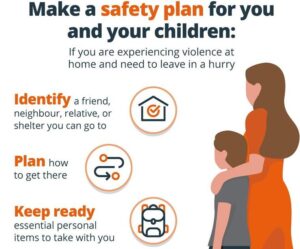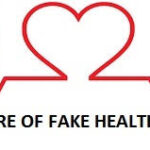Third wave of COVID will impact Children is a complete misinformation there is no scientific evidence behind it, says AIIMS professor.
The COVID-19 pandemic has emerged as a significant and global public health crisis. Amidst this, there has been a hidden epidemic of ‘information’ that makes COVID-19 stand out as a ‘digital infodemic’ from the earlier outbreaks. Speaking on misinformation, disinformation, and misinformation on Covid Dr. Sanjay Kumar Rai, President, IPHA, Professor, Dept. of Community Medicine, AIIMS, New Delhi says, “The combination of misinformation and disinformation, which is called infodemic, has been happening since the outbreak of the COVID-19 pandemic. However, the recent example of misinformation is that – the third wave of COVID will impact Children – this is Complete Misinformation as there is no scientific basis behind it. We see people wear hand gloves perceiving that it will protect them from infection, but it doesn’t help in this, on the contrary, it helps spread the virus as while wearing hand gloves, you don’t wash hands and touch other surfaces – in this way there is the probability of spreading the virus. To keep people away from infodemic, community education is required, wherein the role of public health experts are significant.”


Elaborating on how infodemic during COVID-19 has impacted the mental health, Prof K Sekar Head, Centre for Psycho-Social Support in Disaster Management, National Institute of Mental Health & Neurosciences (NIMHANS) says, “Immediately after COVID came into India, there was the reaction from 95% of the people, showing mental health burden and the 5% who didn’t react, had no source of communication. Although, the mental burden decreased gradually, yet COVID-19 has been a source of complex, multifaceted stress for many. During the COVID-19 crisis, communication was indispensable in dispelling fears, uncertainty, and unifying individuals worldwide in a collective fight against health threats. Inadequate crisis communication can bring dire personal and economic consequences. As far as the mental health consequences are concerned, there is fear and uncertainty associated with COVID-19, anxiety, and distress caused by lockdowns and social distancing, limited access to mental health services – and this is all due to the misinformation and disinformation surfacing around.”
According to Dr. Rajib Das Gupta, Chairperson, Centre of Social Medicine & Community Health, JNU, New Delhi, “In the context of COVID-19 pandemic, infodemic was described as an over-abundance of information – some accurate or some not makes it hard for people to find the trustworthy sources and the reliable guidance when they needed. Interestingly, the World Economic Forum cautions these as digital wildfires. The COVID rumour waves started as early as the third week of January and the second rumour surfaced in the month of February. There has been confusion around, and all forms of media are pumping the information but all are not credible. There has been a very complex situation as a multitude of activities are going on. There is a lack of risk communication.”
While elaborating on understanding the misinformation, disinformation, and misinformation during Infodemic Pandemic eSummit, Dr. Amitav Banerjee, Prof & Head of Community Medicine, Dr. DY Patil Medical College, Pune said, “Misinformation would be the act of omission, misinformation may be the act of commission and misinformation may be some malafide vested interest. We need to have an open debate. Omission and commission by the government authorities and scientists are required. Public health professionals from top to bottom are required to be deputed. Good scientific debates are required for transparency.”
Dr. Chandrakant Lahariya, Vaccine Public Policy & Health Systems Expert said, “As far as the vaccine hesitancy is concerned, people have been hesitant since 1798 when vaccines came into existence. Although a large number of people accept vaccines, yet 30-40% are hesitant. Everybody is inundated with information they are getting from the internet. Since the onset of the polio vaccination, there has been hesitancy. During COVID times, the reason behind hesitancy is misinformation. Everybody is hungry for information. Govt should include specialist health communication agencies for running coordinated behaviour change campaign and a professionally drafted centralized communication strategy, which should be followed by all stakeholders combined.”











